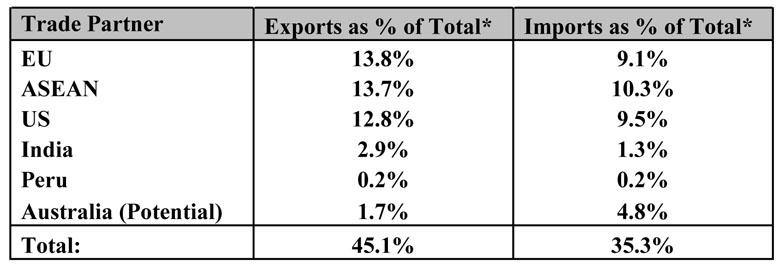Personal Wealth Management / Economics
Korean Kerfuffle
After a classic parliamentary brawl, South Korea’s National Assembly ratified the US-Korea free trade agreement.
South Korean President Lee Myung-bak has had a rough two years. His Grand National Party (GNP) lost several seats in the June 2010 local elections and May 2010 parliamentary elections, lost Seoul’s recent mayoral election to the opposition Democratic Party (DP) and has polled behind the DP since mid-year.
“The Bulldozer,” as Lee’s known, is losing favor for a few reasons. A rising wealth gap has disgruntled many, forcing Lee to scrap planned tax cuts for corporations and high earners. There’s also heightened tensions with North Korea, which sank a South Korean naval ship in March 2010 (killing 46) and shelled a South Korean-controlled island in November 2010 (killing four). Now, there are public protests over the South Korea/US free trade agreement (FTA), which rammed its way through the National Assembly last week.
We’ve writtenextensively about US politicking over the FTA, which Congress finally passed in October. But Korea’s road to ratification was equally tumultuous. After the original agreement was signed in 2007, some Korean lawmakers protested reducing tariffs on American cars and importing US beef (tens of thousands of Koreans demonstrated over beef, fearing mad cow disease—a risk Korea’s media blew out of proportion). The agreement was thus renegotiated in 2010, delaying auto tariff reductions for five years and taking beef off the table.
The DP’s latest beef was with a clause stating trade disputes will be arbitrated by an international body. They claimed the US will disproportionately influence arbitrators, automatically putting Korea at a disadvantage (bizarrely, the same clause is in Korea’s other FTAs, including the recent EU deal). Lee offered to renegotiate this provision once Parliament approved the deal, but DP lawmakers rejected him, demanding renegotiation happen first.
What followed is a classic tale of Korean politics (where US lawmakers are known for being, well, boring, and British MPs are known for verbal rugby matches, Korean legislators are known for fisticuffs...literally). Since the GNP holds 172 of 299 seats, the DP couldn’t vote the bill down, so they barricaded a parliamentary chamber to prevent a vote. Why they thought that would work is unclear, considering they busted a similar GNP blockade with sledgehammers and chainsaws during the 2008 FTA debates. Sure enough, the GNP forced their way onto the assembly floor last Tuesday, holding an unscheduled session amid shouts, scuffles and a teargas assault from one DP member. An hour later, the bill passed 151 to 7.
All these harangues might lead you to think South Korea’s a stranger to free trade, but in reality the nation’s been on quite a free-trade binge the past few years. Deals between the EU, ASEAN, US, India and Peru have all been either announced, signed or implemented in just two years. Another potential deal is being negotiated with Australia. Which is likely to Korea’s benefit—removing trade barriers likely promotes greater efficiency in the Korean economy, provides consumers more choices and lowers prices. Some economists estimate the US deal alone could create roughly 350,000 jobs and boost GDP by 5.7% (we’re generally skeptical about such far-reaching and long-range forecasts, but we agree with the positive view of trade they impart).
Exhibit 1: Korean Free Trade Deals Announced or Implemented Since 2010
*For calendar year 2010. Sources: Thomson Reuters, WTO.
However, while Korea’s been very active in inking and passing deals, free trade is often a difficult sell to its public. Aside from parliamentary roughhousing, there have been daily public protests outside the National Assembly. Thus, how this will affect Lee’s popularity in advance of next year’s election remains to be seen. And it seems his opposition is attempting to capitalize, seeing the protests and other public disenchantments as an opportunity to curry voter favor. Following the US deal ram-through, the DP announced it intends to boycott further parliamentary sessions prior to the election and demanded Lee’s government resign. What’s more, DP Chairman Sohn Hak-kyu also said the DP will “declare the agreement invalid” if they take power in 2012.
Given the FTA is expected to take effect early in 2012, it’s unlikely a DP government could or would do much to unwind it after the fact if they win—re-erecting barriers would cause Korea to lose face on the international stage. So this certainly seems a case of political grandstanding by the DP. But given Korea’s leadership’s position on global free trade, the political discourse there is certainly a story to watch in 2012.
(Hat tip to Brad Pyles for the chart and key data.)
If you would like to contact the editors responsible for this article, please message MarketMinder directly.
*The content contained in this article represents only the opinions and viewpoints of the Fisher Investments editorial staff.
Get a weekly roundup of our market insights
Sign up for our weekly e-mail newsletter.

See Our Investment Guides
The world of investing can seem like a giant maze. Fisher Investments has developed several informational and educational guides tackling a variety of investing topics.






